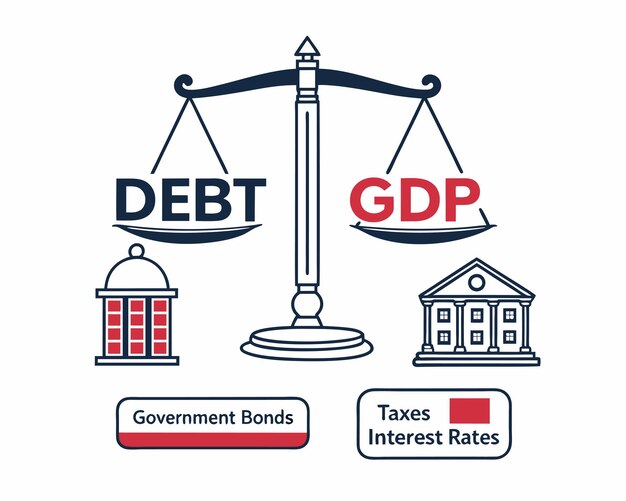Investing in Series I Bonds: Secure Savings Above 5% for 6 Months

Investing in Series I Bonds offers a safe haven for your savings, providing a guaranteed interest rate above 5% for the next six months, making them an attractive option for risk-averse investors seeking stable returns.
Looking for a secure investment opportunity with a guaranteed return? Investing in Series I Bonds: A Safe Haven with a Guaranteed Interest Rate Above 5% for the Next 6 Months might be the perfect solution to protect your savings while earning a competitive interest rate.
Understanding Series I Bonds
Series I bonds are a type of U.S. Treasury security designed to protect investors’ purchasing power by adjusting for inflation. They offer a fixed interest rate combined with an inflation-adjusted rate, providing a return that keeps pace with rising costs.
What are Series I Bonds?
Series I bonds, also known as inflation-indexed bonds, are issued by the U.S. Department of the Treasury. These bonds are designed to protect the value of your investment from inflation, making them a popular choice for conservative investors.
How Do They Work?
The interest rate on Series I bonds is a composite rate that combines a fixed rate and an inflation rate. The fixed rate remains constant for the life of the bond, while the inflation rate adjusts twice a year, in May and November, based on the Consumer Price Index for all Urban Consumers (CPI-U).

- Fixed Rate: The fixed rate is determined at the time of purchase and remains constant.
- Inflation Rate: The inflation rate is based on the CPI-U and adjusts every six months.
- Composite Rate: The combined rate is calculated using a formula that incorporates both the fixed and inflation rates.
Investing in Series I bonds is a straightforward process, primarily done through the TreasuryDirect website. Understanding how these bonds work is essential for making informed investment decisions and ensuring their suitability for your financial goals.
Why Invest in Series I Bonds Now?
With inflation concerns on the rise, Series I bonds have become an attractive option for investors seeking to protect their savings. The current guaranteed interest rate above 5% for the next six months offers a compelling reason to consider investing now.
Inflation Protection
The primary advantage of Series I bonds is their ability to protect against inflation. As the inflation rate rises, the composite interest rate on the bond adjusts accordingly, ensuring that your investment maintains its purchasing power.
Guaranteed Interest Rate
The current guaranteed interest rate above 5% for the next six months provides a secure return on your investment. This rate is particularly attractive compared to other low-risk investment options that may offer lower yields.
Safe Haven
Series I bonds are backed by the full faith and credit of the U.S. government, making them one of the safest investments available. This security is especially appealing during times of economic uncertainty.
- Inflation Hedge: Protects your savings from losing value due to inflation.
- Competitive Returns: Offers a guaranteed interest rate that can outperform other low-risk options.
- Government Backed: Provides peace of mind with the backing of the U.S. Treasury.
Given the current economic climate and the attractive interest rates, now is an opportune time to consider investing in Series I bonds to safeguard your financial future.
Pros and Cons of Series I Bonds
Like any investment, Series I bonds have their advantages and disadvantages. Understanding these pros and cons can help you determine if they align with your financial goals and risk tolerance.
Advantages
Series I bonds offer several benefits, including inflation protection, a guaranteed interest rate, and the backing of the U.S. government. These features make them an appealing choice for conservative investors.
Disadvantages
Despite their advantages, Series I bonds also have some drawbacks. These include limitations on the amount you can purchase each year, restrictions on when you can redeem the bonds, and potential tax implications.

One notable restriction is that you cannot redeem the bonds within the first year of purchase. If you redeem them before five years, you forfeit the previous three months’ worth of interest. This lock-up period may not suit investors who need immediate access to their funds.
- Pros: Inflation protection, guaranteed interest rate, government backing.
- Cons: Purchase limits, redemption restrictions, potential tax implications.
Weighing the pros and cons is crucial before investing in Series I bonds. Consider your financial goals, risk tolerance, and liquidity needs to make an informed decision.
How to Purchase Series I Bonds
Purchasing Series I bonds is a straightforward process that can be done online through the TreasuryDirect website. The following steps outline how to buy these bonds and start earning interest.
TreasuryDirect Account
The first step is to create an account on the TreasuryDirect website. This account will allow you to purchase, manage, and redeem your Series I bonds electronically.
Purchase Process
Once you have created an account, you can purchase Series I bonds directly from the TreasuryDirect website. You will need to provide your Social Security number, bank account information, and the amount you wish to invest.
Limitations
There are limitations on the amount of Series I bonds you can purchase each year. Currently, the limit is $10,000 per person per calendar year, purchased electronically through TreasuryDirect. You can also receive up to $5,000 in paper Series I bonds as a part of your income tax refund each year.
The process for purchasing Series I Bonds through TreasuryDirect is designed to be user-friendly and secure, ensuring that investors can easily manage their investments. Always double-check your information and understand the purchase limits to avoid any complications.
Tax Implications of Series I Bonds
Understanding the tax implications of Series I bonds is essential for maximizing your investment returns. While these bonds offer certain tax advantages, it’s important to be aware of the potential tax liabilities.
Federal Taxes
Series I bond interest is subject to federal income tax but is exempt from state and local taxes. This can be a significant advantage for investors who live in states with high income tax rates.
Education Tax Benefit
Series I bonds can be used to pay for qualified higher education expenses, and the interest earned may be tax-free if certain conditions are met. This can be a valuable benefit for families saving for college.
Reporting Interest
You have the option of reporting the interest earned on your Series I bonds each year or deferring it until you redeem the bonds or they mature. Deferring the interest can be beneficial for tax planning purposes.
- Federal Tax: Interest is subject to federal income tax but exempt from state and local taxes.
- Education Benefit: Interest may be tax-free if used for qualified higher education expenses.
- Reporting Options: Interest can be reported annually or deferred until redemption or maturity.
Understanding these tax implications can help you make informed decisions about when to redeem your bonds and how to plan for your future tax liabilities. Always consult with a tax professional for personalized advice.
Alternatives to Series I Bonds
While Series I bonds offer a unique combination of safety and inflation protection, there are other investment options to consider. Exploring these alternatives can help you diversify your portfolio and find the best fit for your financial goals.
Treasury Inflation-Protected Securities (TIPS)
TIPS are another type of U.S. Treasury security that adjusts for inflation. Like Series I bonds, TIPS offer inflation protection, but they are sold on the secondary market and can be purchased in larger denominations.
High-Yield Savings Accounts
High-yield savings accounts offer competitive interest rates and are insured by the FDIC, making them a safe place to store your savings. While they may not offer the same level of inflation protection as Series I bonds, they provide easy access to your funds.
Certificates of Deposit (CDs)
CDs are savings accounts that hold a fixed amount of money for a fixed period of time, and in turn, gives you a fixed interest rate.
Certificates of Deposit (CDs) offer a fixed interest rate for a specified period, providing a predictable return on your investment. CDs are also FDIC-insured, making them a low-risk option.
- TIPS: Offer inflation protection and are sold on the secondary market.
- High-Yield Savings Accounts: Provide competitive interest rates and easy access to funds.
- CDs: Offer fixed interest rates for a specified period.
Each of these alternatives has its own set of advantages and disadvantages. Evaluating your investment goals, risk tolerance, and liquidity needs will help you determine which option is best for you.
| Key Point | Brief Description |
|---|---|
| 🛡️ Inflation Protection | Series I Bonds protect your savings from losing value due to inflation. |
| 📈 Guaranteed Rate | Offers a competitive interest rate fixed for six months, providing secure returns. |
| 🏦 Government Backed | Backed by the U.S. Treasury, ensuring a high level of security. |
| 💸 Tax Advantages | Interest is exempt from state and local taxes and can be tax-free for education. |
Frequently Asked Questions (FAQ)
▼
Series I bonds are U.S. Treasury securities designed to protect your savings from inflation. They earn a composite interest rate that combines a fixed rate with an inflation rate, ensuring your investment keeps pace with rising costs.
▼
The interest rate is a composite of a fixed rate, which remains constant, and an inflation rate, which adjusts every six months based on the Consumer Price Index for all Urban Consumers (CPI-U).
▼
You can purchase up to $10,000 in electronic Series I bonds per calendar year through TreasuryDirect. Additionally, you can receive up to $5,000 in paper bonds as part of your income tax refund.
▼
Yes, Series I bond interest is subject to federal income tax but is exempt from state and local taxes. The interest may also be tax-free if used for qualified higher education expenses.
▼
You cannot redeem Series I bonds within the first year of purchase. If redeemed before five years, you forfeit the previous three months’ worth of interest. After five years, there are no penalties for redemption.
Conclusion
Investing in Series I Bonds: A Safe Haven with a Guaranteed Interest Rate Above 5% for the Next 6 Months can be a prudent decision for those seeking a safe, inflation-protected investment option. With their guaranteed interest rate and backing by the U.S. government, Series I bonds offer a secure way to grow your savings while keeping pace with inflation. While they may not be the highest-yielding investment, their combination of safety and inflation protection makes them a valuable addition to a diversified portfolio.





